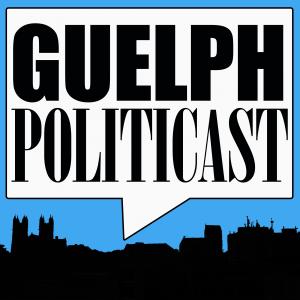
For much of the last year, the Upper Grand District School Board began an investigation into the effect of having police officers in school, especially the School Resource Officer program, after the Black Lives Matter march last June in Downtown Guelph. The task force recommended, among other things, that the SRO come to end, but that was not the easy decision you might have thought it was.
Back in April, the Upper Grand District School Board unanimously adopted the eight recommendations from the Police Presence in Schools Task Force. The biggest recommendation though was about removing the SRO from schools, and it’s been the biggest point of discussion since the task force announced the results of their deliberations. Come what may, police will now be an occasional presence in schools, not a frequent one.
There’s been some disagreement on that point. A letter sent to local media from Guelph Police Association president Matt Jotham touted the positive effects of the SRO, while the Wellington Catholic District Board voted to keep their SRO. Still, just last week, the Waterloo Region School Board ended their own SRO after a top level review, which is a reminder that this situation is much more complicated than keeping the police out of schools. It demands a deeper exploration.
This week we're joined by Cheryl Van Ooteghem and Marva Wisdom, who were co-chairs of the Police Presence in Schools Task Force; Van Ooteghem is the Superintendent of Education at the UGDSB, and Wisdom is the head of Wisdom Consulting and a community organizer with a long history of local service. We will talk about the origins of the School Resource Officer, and why the program has needed a re-evalution for some time. We will also discuss the wide-ranging feedback that they received, and what factors went into the final recommendation.
Let's deconstruct the the decision on police presence in schools on this week's Guelph Politicast!
You can read the full 150-page from the Police Presence in Schools Task Force on the Upper Grand District School Board’s website. You can also review the Guelph Politico coverage of the April meeting here on the Guelph Politico website.
The host for the Guelph Politicast is Podbean. Find more episodes of the Politicast here, or download them on your favourite podcast app at Apple Podcasts, Stitcher, Google Podcasts, and Spotify.
Also, when you subscribe to the Guelph Politicast channel and you will also get an episode of Open Sources Guelph every Monday, and an episode of End Credits every Friday.
More Episodes
 2024-11-15
2024-11-15
 38
38
 2024-11-11
2024-11-11
 56
56
 2024-11-04
2024-11-04
 39
39
 2024-10-28
2024-10-28
 50
50
 2024-10-25
2024-10-25
 44
44
 2024-10-23
2024-10-23
 134
134
 2024-10-21
2024-10-21
 45
45
 2024-10-18
2024-10-18
 39
39
 2024-10-14
2024-10-14
 41
41
 2024-10-11
2024-10-11
 31
31
 2024-10-07
2024-10-07
 36
36
 2024-10-04
2024-10-04
 35
35
 2024-10-02
2024-10-02
 50
50
Create your
podcast in
minutes
- Full-featured podcast site
- Unlimited storage and bandwidth
- Comprehensive podcast stats
- Distribute to Apple Podcasts, Spotify, and more
- Make money with your podcast
It is Free
- Privacy Policy
- Cookie Policy
- Terms of Use
- Consent Preferences
- Copyright © 2015-2024 Podbean.com





